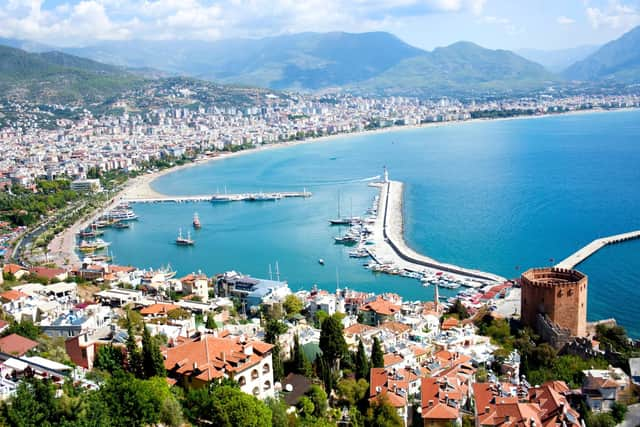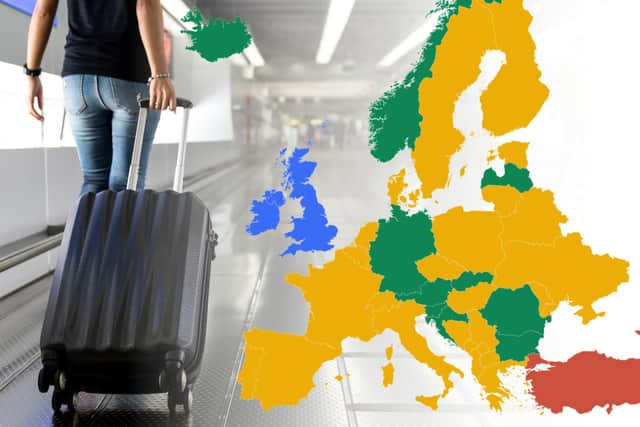Why is Turkey still on the red list for UK travel?
There was some rare good news for the UK holiday industry yesterday as travel restrictions for several countries were eased by the UK Government – a decision that was swiftly followed by the Scottish Government.
India, Bahrain, Qatar and the United Arab Emirates were all moved from the red list to the amber list, opening them up to vaccinated visitors.
Advertisement
Hide AdAdvertisement
Hide AdMeanwhile seven countries – Austria, Germany, Slovenia, Slovakia, Latvia, Romania and Norway – moved from the amber to the green list, and France moved from the now-defunct amber-plus list to amber.
But, despite hopes of an easing, Turkey remained on the red list, meaning it is out of bounds to the more than two million UK tourists that visit each year.
Here’s what we know.
How are red list countries decided?
A country is deemed as high risk if a variant of concern - like the strains found in South Africa, Brazil and India - has been identified there.


The latter variant, known as Delta, is thought to be between 30 and 100 per cent more transmissible than the mutation that was first detected in Kent.
Countries are also assessed on their rate of infection and the progress of their vaccination programme.
Why is Turkey on the red list?


Turkey’s Covid cases are relatively low, but they are increasing.
On Tuesday the Turkish Government announced the number of new daily coronavirus cases had surged to nearly 25,000 – the highest figures for almost three months.
The fresh wave of the virus has resulted in daily deaths rising to 126, the worst figure since the start of June when authorities relaxed restrictions.
How long will Turkey remain on the red list?
Advertisement
Hide AdAdvertisement
Hide AdIt’s impossible to tell whether it will be possible to ease travel restrictions to Turkey in the near future, although it is hoped that the country’s vaccination programme may already be having an impact.
Two-thirds of Turkish adults have now received at least one Covid vaccine, while just under 50 per cent have received a double dose.
In a Tweet accompanying the latest Covid data, Health Minister Fahrettin Koca said: "If we follow the rules of combating the epidemic and get our vaccinations, we will take action to end the epidemic.”
The next UK travel review is expected on either Wednesday, August 25, or Thursday, August 26.
Is it still possible to travel to a red list country?
Although there is Government advice against all non-essential travel to red list countries, it is still possible to visit them if you follow the rules and are prepared to pay for the pleasure.
People coming back from red list countries are required to quarantine for 10 days and 11 nights in government-approved hotels to stop new Covid infections and variants of concern entering the UK.
Travellers also need to pay for the hotel themselves at a cost of £1,750 per person for those journeying alone, while families and couples in the same hotel room pay less.
The second person pays £650, and children’s stays cost £325. A family of four staying together pays £3,050.
A message from the Editor:
Advertisement
Hide AdAdvertisement
Hide AdThank you for reading this article. We're more reliant on your support than ever as the shift in consumer habits brought about by Coronavirus impacts our advertisers.
If you haven't already, please consider supporting our trusted, fact-checked journalism by taking out a digital subscription.
Comments
Want to join the conversation? Please or to comment on this article.
